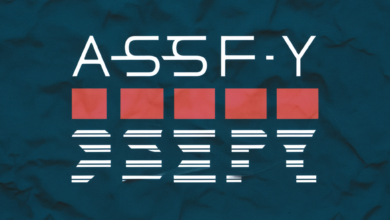iLovePrive: The Ultimate Guide to Private and Secure Digital Experiences

Introduction
In an era where digital privacy is constantly under threat, platforms like iLovePrive have emerged to offer users secure, private, and unrestricted access to online content. Whether it’s anonymous browsing, encrypted communications, or bypassing geo-restrictions, iLovePrive positions itself as a solution for those who value their digital freedom. But what exactly is iLovePrive, and how does it work? This comprehensive 5000-word guide explores its features, benefits, potential risks, legal considerations, and alternatives. We’ll also address frequently asked questions to help you determine whether iLovePrive is the right choice for your privacy needs.
1. What is iLovePrive? Understanding Its Core Functionality
iLovePrive is a privacy-focused service that provides tools for secure internet browsing, anonymous access to restricted content, and protection against surveillance. Unlike conventional VPNs or proxy services, iLovePrive emphasizes ease of use while maintaining strong encryption protocols. The platform may offer features such as IP masking, data encryption, ad-blocking, and anti-tracking technology, making it appealing to users who want to avoid censorship, ISP monitoring, or geo-blocks. While its exact offerings can vary, the primary goal remains consistent: to give users control over their online footprint. However, as with any privacy tool, understanding its limitations and potential vulnerabilities is crucial before relying on it for sensitive activities.
2. The Technology Behind iLovePrive: How It Keeps You Anonymous
To deliver on its promises of privacy, iLovePrive likely employs a combination of technologies such as VPN tunneling, SOCKS5 proxies, and AES-256 encryption. These methods ensure that user data remains unreadable to third parties, including hackers and government agencies. Additionally, iLovePrive may use a no-logs policy, meaning it doesn’t store records of user activity—a critical feature for those seeking true anonymity. Some versions of the service might also integrate Tor network support for an extra layer of security. However, the effectiveness of these measures depends on the provider’s transparency and infrastructure. If iLovePrive operates servers in privacy-friendly jurisdictions and undergoes independent audits, its claims of security hold more weight. Users should always verify these details before trusting the service with confidential data.
3. Key Features of iLovePrive: What Sets It Apart?
iLovePrive distinguishes itself from competitors through a mix of accessibility and advanced privacy tools. One standout feature could be its one-click connection, allowing even non-technical users to enable protection effortlessly. Other potential features include:
-
Multi-hop VPN routing (redirecting traffic through multiple servers to obscure the origin)
-
Kill switch functionality (automatically disconnecting the internet if the VPN drops)
-
DNS leak protection (preventing accidental exposure of browsing data)
-
Geo-spoofing capabilities (unlocking region-locked streaming platforms like Netflix or BBC iPlayer)
-
Integrated malware and ad blocking (enhancing both privacy and browsing speed)
These features make iLovePrive a versatile tool, but performance can vary based on server load, location, and the user’s own internet speed.
4. Legal and Ethical Considerations: Is iLovePrive Safe to Use?
While iLovePrive promotes privacy, its legality depends on how it’s used. In most countries, simply using a VPN or proxy is legal, but accessing copyrighted content or engaging in illegal activities (even through encryption) remains prohibited. Governments in restrictive regions (like China or Iran) actively block such services, and users caught bypassing censorship could face penalties. Additionally, if iLovePrive lacks transparency about data retention, there’s a risk that authorities could compel the company to hand over information. Ethically, the debate continues—privacy advocates argue that tools like iLovePrive are essential for free speech, while critics claim they enable cybercrime. Users must weigh these factors and ensure they comply with local laws.
5. Potential Risks and Drawbacks of Using iLovePrive
No privacy tool is flawless, and iLovePrive is no exception. One major concern is the possibility of fake or malicious versions of the service—scammers often create lookalike apps to steal data. Even legitimate versions might suffer from slow speeds due to encryption overhead or overcrowded servers. Another risk is false anonymity; if iLovePrive logs user data despite claiming otherwise, law enforcement or hackers could exploit this. Free versions of such services are particularly risky, as they may monetize through ads or sell user metadata. To mitigate these risks, users should research iLovePrive’s reputation, read independent reviews, and consider premium alternatives if security is a top priority.
6. Alternatives to iLovePrive: Comparing Privacy Tools
For those hesitant about iLovePrive, several well-established alternatives offer similar or better privacy protections:
-
NordVPN & ExpressVPN: Industry leaders with proven no-logs policies and high-speed servers.
-
ProtonVPN: Developed by the team behind ProtonMail, focusing on strong encryption and transparency.
-
Tor Browser: Free and highly anonymous but slower due to its decentralized network.
-
Windscribe: A user-friendly option with a generous free tier and robust security features.
Each alternative has trade-offs between speed, cost, and ease of use, so choosing the right one depends on individual needs.
7. The Future of Privacy Tools: Where Does iLovePrive Stand?
As internet surveillance grows, demand for privacy tools like iLovePrive will likely increase. However, the service must adapt to survive—whether by improving transparency, expanding server networks, or integrating new encryption methods. Governments and corporations are also developing more advanced tracking techniques, meaning privacy services must continuously evolve. If iLovePrive can maintain user trust while innovating, it could remain a key player in the digital privacy space.
Frequently Asked Questions (FAQ)
Q1: Is iLovePrive completely free to use?
A: Some versions may offer free access with limitations (e.g., data caps or ads), while premium tiers provide full features. Always check the official website for accurate pricing.
Q2: Can iLovePrive unblock Netflix and other streaming platforms?
A: It depends on whether the service actively maintains servers capable of bypassing VPN detection. Streaming sites frequently block VPN IPs, so success isn’t guaranteed.
Q3: Does iLovePrive work in countries with strict internet censorship?
A: If it uses obfuscated servers (disguising VPN traffic as regular traffic), it might work. However, nations like China aggressively block such tools.
Q4: Is my data truly safe with iLovePrive?
A: Only if the service follows a strict no-logs policy and uses strong encryption. Independent audits or transparency reports would help verify these claims.
Q5: What should I do if iLovePrive stops working?
A: Try switching servers, updating the app, or contacting support. If the service is blocked, consider alternatives like Tor or a different VPN.
Conclusion
iLovePrive represents the growing demand for digital privacy in an age of increasing surveillance and censorship. While it offers promising features for anonymous browsing and content access, users must remain cautious about its legitimacy, performance, and legal implications. By comparing it to established alternatives and staying informed about potential risks, individuals can make better decisions about protecting their online freedom. As the battle between privacy advocates and regulators continues, tools like iLovePrive will play a pivotal role in shaping the future of internet accessibility and security.



